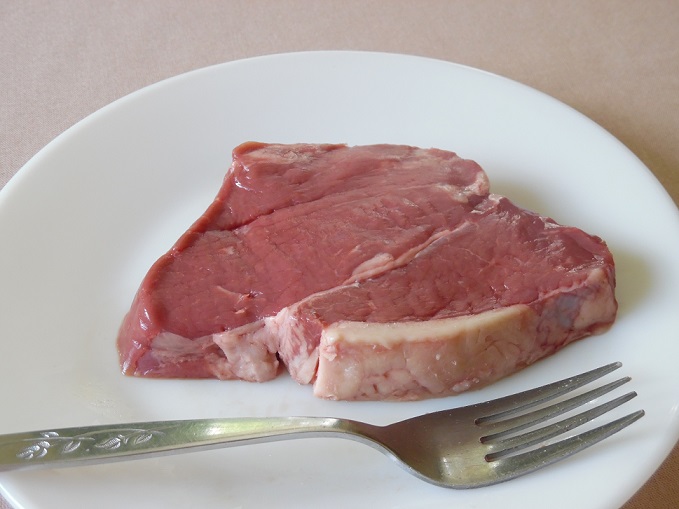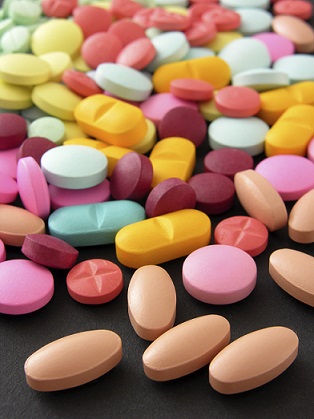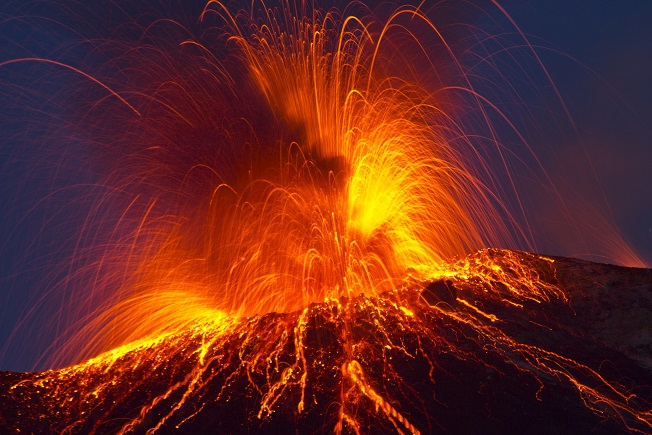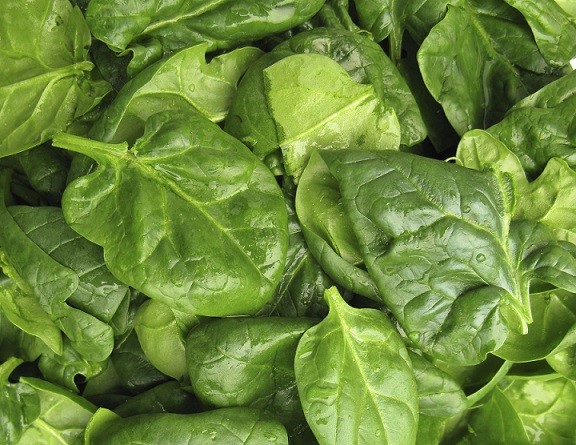 If the truth hasn’t reached you yet, then you can only clear acne permanently from inside the body.
If the truth hasn’t reached you yet, then you can only clear acne permanently from inside the body.
Rather than wasting time with creams and benzoyl peroxide in a meticulous regimen, it’s better to just cheat, skip those steps and adopt the ultimate diet and lifestyle.
Overall, there’s two main internal problems: 1) a state of chronic inflammation, and 2) a systematic deficiency of antioxidants.
Make no mistake that in this civilisation of ours, the heroes and villains that can cause or improve acne are endless. Zinc is fantastic for red and angry pimples, as is eating less sugar. Air pollution can cause acne, or even shaking the hand of a woman who applied moisturiser that morning.
But that said, almost every minor factor filters through to those two main factors, plus the closely ranked in third factor, oily skin.
In particular, flooding your body with antioxidants and the building blocks to manufacture them is an incredibly easy acne strategy…
…and one of the better researched antioxidant supplements is alpha lipoic acid.
This antioxidant is both found in foods and manufactured by the human body in small quantities. Red meat, spinach, broccoli and liver contain ALA, but the doses are tiny; hence, ALA is mostly taken as an over-the-counter supplement. Small amounts are found in every human cell, helping to turn glucose into energy.
On one hand, alpha lipoic acid has extremely mixed testimonials from acne patients. Yet there’s also a ton of indirect evidence for clear-skin powers.
The antioxidant powers of alpha lipoic acid
 The quality that makes alpha lipoic acid unique compared to say, vitamin E or vitamin C, is helping to regenerate other antioxidants as well. However, ALA is a powerful free radical scavenger in its own right, particularly its reduced form called dihydrolipoate, produced during the first stage of digestion.
The quality that makes alpha lipoic acid unique compared to say, vitamin E or vitamin C, is helping to regenerate other antioxidants as well. However, ALA is a powerful free radical scavenger in its own right, particularly its reduced form called dihydrolipoate, produced during the first stage of digestion.
This study was nice and simple, applying ALA to cultured human cells and observing a drop in reactive oxygen species (free radical) generation. Dihydrolipoate was the key to its success.
Read Annihilate Your Acne – learn to prevent acne and stop just treating it!
Then there’s this review from 20 years ago (1995). It claimed that ALA and its reduced form dihydrolipoate can deactivate an extremely wide variety of free radicals, including superoxide radicals, hydroxyl radicals, hypochlorous acid, peroxyl radicals, and singlet oxygen.
Since then, the fantastic studies have only accumulated. Some have been highly specific, such as testing the deadly heavy metal arsenic. When the rats were injected with it, free radicals and lipid peroxides like malondialdehyde shot up in their brain, leading to neuronal degeneration (study). ALA, however, had a protective effect.
It reversed both 1) the decrease in glutathione and related enzymes and 2) the out-of-control malondialdehyde (one of the deadliest fat soluble free radicals). The result was an increase in the rat’s cognitive performance (let’s hope they don’t get too smart).
This rat study stuck with the arsenic theme and restored the reduced glutathione once again, plus other antioxidants like catalase and superoxide dismutase. The relevance for acne? Arsenic doesn’t just destroy the brain; the onslaught of free radicals it unleashes can show up vividly on the skin.
Alpha lipoic acid is one of the few antioxidants which crosses the brain blood barrier; this study observed a wide variety of benefits for Alzheimer’s disease. As for acne, it’s a rare antioxidant to be both fat and water soluble, which probably explains why it fights so many free radical forms. This brain health review commented that combining ALA with plant based antioxidants like curcumin (from turmeric) or ECGC from green tea could enhance its power.
The top 6 vitamins and minerals for clearing acne forever
Again, ALA is particularly special for restoring antioxidants that have already been used. Free radicals are simply molecules missing an electron, which cause their chaos by bombarding and destabilising healthy tissues to steal a new one. Antioxidants work by donating electrons to these loose cannons of molecules, without becoming free radicals themselves…
…but when they do, they become deactivated, and totally useless. ALA can swoop in and regenerate lost antioxidants, particularly glutathione and vitamin C, but also two lesser known antioxidants called coenzyme Q10 and NAD (nicotinamide adenine dinucleotide). This study found that ALA supplements increased glutathione by 50% in healthy mouse lung cells. Glutathione is one of the best researched antioxidants for acne (which is why there’s a full article here).
All in all, alpha lipoic acid is fairly potent antioxidant, although there’s some controversy about its effectiveness across the whole body, which we’ll analyse in the analysis section (surprisingly).
The anti-inflammatory powers of alpha lipoic acid
 Overall, the condition called chronic inflammation is an acne nightmare, but it’s a highly complicated topic. There’s countless unique pro-inflammatory chemicals, it’s better to have an overdose of inflammation in some circumstances, and the complex interactions between chemicals make the benefits of reducing just one very unpredictable for acne.
Overall, the condition called chronic inflammation is an acne nightmare, but it’s a highly complicated topic. There’s countless unique pro-inflammatory chemicals, it’s better to have an overdose of inflammation in some circumstances, and the complex interactions between chemicals make the benefits of reducing just one very unpredictable for acne.
No scientist alive or dead understands the immune system in full…
…but alpha lipoic acid might bypass all that. It’s an interesting treatment, because it targets the master regulator of multiple chemicals – NF-kappaB.
NF-kB is a protein complex, and elevated activity has been associated with endless inflammatory diseases like arthritis, cardiovascular disease, asthma, and inflammatory bowel disease. NF-kappaB doesn’t manufacture many pro-inflammatory chemicals… it’s even more dominant than that. It controls the GENES that transcript the pro-inflammatory chemicals. Its influence on inflammation and thus acne is enormous.
Recommended – the 7 greatest natural topical treatments for acne
This study began by mentioning the importance of upregulated NF-kappaB in chronic inflammatory diseases, particularly in elderly people with arthritis, etc. Then alpha lipoic acid was tested on several immune system molecules. and “reduced NF-kappaB activity in these cells in a dose-dependent manner”. It also reduced a specific pro-inflammatory chemical called TNF-a, and was superior to vitamin C and vitamin E for both powers.
This study, meanwhile, tested human endothelial cells, and once again, alpha lipoic inhibited NF-kappaB in a dose dependent manner. Once again, vitamin C and glutathione did not.
Next we have a 1998 review of all the previous data. All you need is the raw quotation: the benefits “include direct radical scavenging, recycling of other antioxidants, accelerating GSH (glutathione) synthesis, and modulating transcription factor activity, especially that of NF-kappa B”. The NF-kB restraint was responsible for the “sometimes dramatic benefits” of ALA.
Finally, we have a study on cells infected with AIDs, which obviously had some severe immune system abnormalities. NF-kappaB activity was out of control, but ALA inhibited its activation in a dose dependent manner. The required dose was very small; “the inhibitory action of alpha-lipoic acid was found to be very potent”.
If this all sounds like overly scientific jargon, then essentially, alpha lipoic acid controls one of biggest regulators behind pro-inflammatory chemicals. The villains which redden and swell the pimples you see in the mirror every day. Unless the studies all arrived at the same false conclusion.
Why bread and pasta are two of the worst foods for acne
ALA also looks promising for T cells, an important white blood cell for immune system adaptivity, the tailoring of immune system responses to specific threats.
If ALA improves T cell function, then it might stop the inflammatory response to p.acnes bacteria from being so constantly brutal.
The bonus powers of alpha lipoic acid

Here’s a riddle: if you’ve read the article with a keen eye, then you’ll have already identified a unique bonus benefit for acne.
The answer is protection against heavy metals of course. The study on rat brains reversed all the neurotoxicity from arsenic, a toxic heavy metal which was once a popular pesticide before being hastily banned. Significant quantities still contaminate crop fields, particularly former cotton fields, and are absorbed into the root systems of plants used to make apple juice, grape juice and rice.
Consequently, arsenic appears in all of those foods, and later our bodies, causing problems like 1) overproduction of the pore-clogging protein keratin, and 2) glutathione depletion. Alpha lipoic acid could not only protect against arsenic’s dangers, but also reduce its levels: “lipoic acid treatment was effective in reducing brain regional arsenic levels”. Other heavy metals are vulnerable too, including mercury and aluminum.
Finally, we have the second big bonus benefit – improving insulin sensitivity. It’s an offshoot of the antioxidant powers, because the antioxidants protect molecules involved with glucose energy metabolism, making it more efficient.
Get the eBook – learn why diet is ten times more important than hygiene
Thus, less insulin is required overall to shunt the process along, and thus, less insulin stimulates your sebaceous glands and makes your skin oily. Alpha lipoic acid also helps to activate AMPK, a key regulator of cell energy metabolism.
All this data is promising stuff for the strategy of treating acne internally, with natural topical treatments being the perfect bonus weapon.
The analysis of alpha lipoic acid
It’s disappointing then, to reveal that the testimonials of acne patients have been extremely mixed. Sure, one person claimed that “it improved my acne instantly”. There’s plenty of scathing reports, with red rashes and hives all over the body.
But the most common report by far is no visible benefits whatsoever. No reduction in pimples, no redness, no change whatsoever, causing the patient to discontinue their ALA supplement with disappointment. What’s the answer? Is there a mystery factor which blocks alpha lipoic acid’s “proven” benefits when interacting inside the complex human body?
Here’s the most interesting explanation I’ve found – this study, the same one that raved about ALA’s potent antioxidant properties, also found a 0% absorption rate when taken at low, constant levels.
Instead, the molecules simply bound with fatty acid sites on albumin in the bloodstream. Only at high doses does the alpha lipoic acid roam free and interact with cells across the body.
This makes perfect sense, because it’s almost guaranteed that our internet test subjects took low-to-moderate, yet constant doses. Humans have the old fear of the unknown. Only the experimentation fanatics would have jumped in with an instantaneous high dose.
Why zinc supplements can reduce acne by 49.8%
This rat study on ALA’s antioxidant properties in vivo (in living animals, not cells) was also revealing. 98% of the lipoic acid was recoverable in urine 24 hours after administration. The ALA was rapidly metabolised and failed to accumulate in tissues. Compare that to vitamin E or vitamin A, which accumulate in the face to provide a direct shield against acne.
The study authors did praise alpha lipoic acid for a variety of diseases, saying that fuelling glutathione production was the secret. Nevertheless, ALA’s benefits just got cut in half.
In certain circumstances, alpha lipoic acid can also have pro-oxidant effects (study). Its interactions with the human body seem to be highly complex.
In my reckoning, the whole concept of ALA might be suspect. If you can never obtain sufficient quantities through food, and the human body naturally manufactures only tiny levels, why is supplementation necessary at all?
ALA sounds like a very minor player. It’s not like glutathione, where we’re constantly depleted due to toxin exposure. Compared with essential nutrients like vitamin C or vitamin E, alpha lipoic acid seems to be more of a bonus antioxidant, and one that still isn’t guaranteed to work on acne.
There are also no direct studies on skincare. Compare that to NAC, which once slashed acne lesions by 50% after just 8 weeks. Acne patients have 20% less glutathione in their skin than average. For ALA, we have no such simplistic but telling statistics.
Then there’s the side effects. One person reported hives from ALA supplements, and that’s not an isolated incident. Apparently, some Japanese people have developed a condition called insulin autoimmune syndrome.
If you do decide to gamble on alpha lipoic acid, despite everything, then Simply Nature’s Pure (amazon link) is the best brand available, with no harsh additives like magnesium stearate.
Conclusion
For those reasons, I rank alpha lipoic acid towards the bottom half of the antioxidant hierarchy.
There’s a good chance that ALA will improve your acne, but there’s just so much uncertainty orbiting it that vitamin C, vitamin E, or trusted old glutathione boosters like NAC are easily higher priorities.
The antioxidant regenerating powers are pretty juicy, but probably won’t beat taking more of the antioxidants themselves.
Nor would it beat taking the kingpin acne minerals for glutathione – zinc, magnesium and selenium. But alpha lipoic acid isn’t useless either; it has proven benefits for Alzheimer’s patients, preventing further cognitive decline.
In reality, the anti-inflammatory benefits are far more convincing than the famous antioxidant ones. However, it’s possible that they won’t translate to visible results either. MSM or zinc are superior if you want reduced acne inflammation for low, low prices.
Overall, the testimonials speak for themselves – you can experiment with ALA, and if the stars align perfectly, it might clear acne fantastically. However, you shouldn’t make it a top priority.
NEXT: read the 167 page eBook and get the ultimate diet for acne
Thanks for reading!